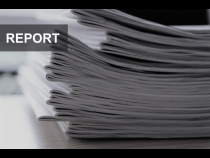Berichte, Studien, Policy Paper, Workingpaper
Political Contestations in South African Migration Governance
Moyo, Khangelani
Kurze Beschreibung / Abstract:
South African migration governance has adopted an increasingly securitised approach which also blurs the boundaries between refugees and migrants.
Refugee protection is increasingly fragmented, enveloped by an exclusive immigration system and a weak regional approach in terms of free movement.
There are a number of political stakes related to refugee and migration governance:
- Migration governance is used as leverage in domestic politics. Xenophobic violence against migrant and refugee communities continues routinely. The exclusionary approach works particularly well as a form of leverage in scapegoating the governments failures to address poverty and job creation. A focus on securitisation further concretises an anti-refugee and anti-migrant stance in policy.
- The exclusionary approach contrasts to visions of free movement and Pan-Africanism as well as the benefits of “skilled” migration. In practice however, domestic imperatives are still more important and are often strengthened by the approach to foreign policy, such as quiet diplomacy in neighbouring Zimbabwe. More recently, they have resulted in diplomatic tensions with other African countries.
- The Department of Home Affairs has a performative relationship with civil society who try to keep them in check. Refugee activists are side-lined where possible and given a negative portrayal.
Social xenophobic rhetoric is based on the premises of identity-construction through othering as well as being linked to economic deprivation. These discourses are reinforced both through rhetoric by politicians and the media.
- The border town of Musina shows that such rhetoric is not ubiquitous and a more proactive role for political and community leaders to change the public discourse on the contributions made by migrants to communities is possible.
Erscheinungsdatum Online:
Friday, 29. September 2023
Erscheinungsdatum Print:
Friday, 29. September 2023
Sprache:
english
Verlag:
ABI

